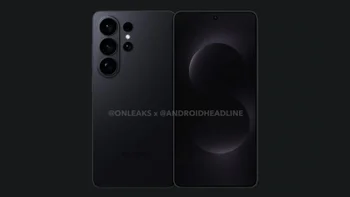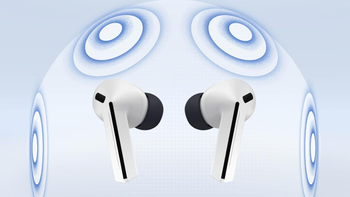If the FBI goes after your YouTube history, how far up the creek without a paddle are you?

- But, Judge, I was watching YouTube videos with my eyes closed! Also, there was this construction noise from across the street and I couldn't hear anything.
- Irrelevant. 20 years of solitary confinement!
Are we getting closer to that dystopian reality? In the light of the recent revelations that the government seeks personal information about who watched certain YouTube videos, a lot of people would say: "Oh, yes, we are!"
One case involved undercover agents seeking to identify a suspect known as “elonmuskwhm”, suspected of illegal crypto transactions, by tracking viewers of certain YouTube tutorials.
Concerned activists say this is a trend that could expose sensitive personal information without probable cause, challenging the foundational principles of privacy and freedom in the digital age.
Let's see what people almost 40 years ago thought about privacy leaks… and see if there's a parallel to be drawn between then and now.
Privacy breached: a judge rented Hitchcock movies
It's 1987, Michael Jackson's Bad album is making teenage girls faint, Hulk Hogan beats Andre the Giant in front of 93,173 people, Stanley Kubrick's Full Metal Jacket is on the big screen and Ronald Reagan says to the USSR leader Mikhail Gorbachev: "Tear down this wall!"
This episode is known as the Bork Tape saga.
According to the list, Judge Bork's favorite actor appeared to be Cary Grant, who appeared in 12 of the 146 videotapes, along with Roger Moore and Alec Guinness. His favorite director seemed to be Alfred Hitchcock, who directed 12 of the rented films. No X-rated titles and nothing scandalous, right?
The leak of Bork's video rental history was intended to illustrate the potential dangers of allowing someone with certain views on privacy to have a significant influence on the Supreme Court. It highlighted the ease with which an individual's private activities could become public and was used to argue the importance of protecting personal privacy rights.
The incident led to a broader public debate on privacy and, ultimately, to the passage of the Video Privacy Protection Act (VPPA) in 1988, which made it illegal to disclose an individual's video rental or sale records without their consent, underscoring the importance of privacy protections.
Even his opponents came to his defense
When the rental list was made public, Bork got aid from the last place to expect – from those opposed to him and his nomination. Several groups complained that this act had violated Bork's right to privacy and questioned whether it's anyone's business what movie one views on Saturday night.
One of the people who criticized Bork's nomination most severely urged the District of Columbia to pass a law banning video stores from releasing movie titles rented by private citizens. The American Civil Liberties Union, another Bork opponent, complained to the editor of the paper that leaked the list that its story was "tantamount to breaking into the judge's home to determine what books he reads".
That's what privacy is all about. It is generally the right to impose limits on what information is collected on you and what information is in general circulation.
Ah, these quotes sure don't feel like they come from 1987. On the contrary, they sound up to date.
SIM swap scam – can the drama turn into a tragedy?

I can almost hear you say: "Yeah, well, that's none of my problem, since I only watch these ten YouTube channels. Also, I don't ever let anyone else use my phone… so I'm good!"
This isn't going to help you in the slightest when things go south, as we'll discuss in a moment.
Before that, let's not forget about the most recent fraud – the SIM swap scam phenomenon.
SIM swap fraud is a type of identity theft where criminals deceive a carrier into transferring a victim's phone number to a SIM card in the fraudster's possession. By doing so, the attacker gains control over the victim's phone calls, text messages and potentially access to secure services.
The two problems with someone looking at your YouTube history

There are two privacy problems with the idea of exposing one's YouTube history. Both are severe, but one can be fatal.
The first problem is what leaks, the second one is who does what with the leak.
For example, you're wearing a Cannibal Corpse t-shirt and your YouTube history leak reveals that you're actually headbanging to Taylor Swift, and you're watching The Kardashians in private.
Joking aside – the real danger, in my humble opinion, is when the concept of a crime changes overnight. You know, if tomorrow's rulers decide that all of a sudden the same things that were legal yesterday are punishable today. If you think that's impossible, better think again.
I don't think there is any solution right now, as these digital times of ours are completely unknown. It's the wild, wild web years. A whole lot of shakin' going on will precede the moment when the dust settles. It's up to the months and years ahead to come up with some sort of adamant rules, if that's even possible.
I think we're still navigating through the dark of the night with our eyes wide shut. Whether we raise our phones to capture a beautiful dawn, or we stay in the dark (literally) because of our YouTube history, remains to be seen.
Until that day comes, you can check out various VPN solutions and see if there's anything that works for you.
Follow us on Google News



![Some T-Mobile users might be paying more starting in March [UPDATED]](https://m-cdn.phonearena.com/images/article/176781-wide-two_350/Some-T-Mobile-users-might-be-paying-more-starting-in-March-UPDATED.webp)










Things that are NOT allowed:
To help keep our community safe and free from spam, we apply temporary limits to newly created accounts: